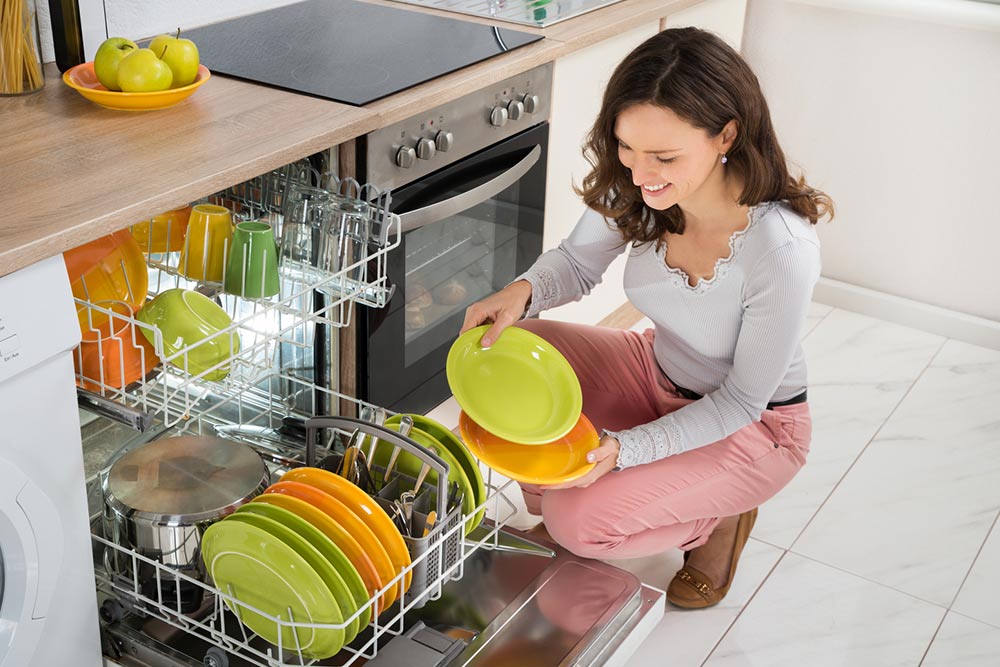5 mistakes to avoid when using a dishwasher

As much as cooking is fun, doing the dishes afterward is a painstaking job. But that does not mean we should let the utensils pile up in the sink. Dishwashers are handy for washing multiple dishes at once and saving time and effort. Most top brands have multiple models with different modes that are easy to operate for everyone. But it is important to avoid some common mistakes while using dishwashers:
Not loading utensils the right way
There is a specific way of loading dishes in dishwashers. Large utensils block the detergent and flow of water in dishwashers, so one should stack them along the back and sides and place smaller dishes at the center and in the front. Similarly, the side of the utensil covered in stains should face the center so that all the stains are removed evenly. If any utensil has remains of burned food, it should go in the bottom rack, facing the sprays. Understanding where what dish goes is important to ensure the dishes are cleaned properly.
Choosing the wrong washing cycle
Most dishwashers by top brands have three washing cycle modes: light, normal, and heavy. The light and normal modes are for regular, moderately stained dishes like plates, spoons, bowls, and forks. One must use the heavy mode for large, heavyweight pots, pans, and utensils. Which cycle to select depends on the type of dishes inside and how dirty they are. Heavy and dirty dishes may need long washing cycles, but smaller cycles may be enough for the other less stained ones.
Pre-rinsing the dishes too much
It is okay to pre-rinse the dishes a little if they are too stained and dirty. But pre-rinsing them too much reduces the efforts exerted by dishwashers. Most models have an inbuilt system called turbidity sensors that measure how soiled the dishes are. When a person pre-washes the dishes, these sensors think they are less dirty and use less energy for washing. Consequently, the dishes may not be cleaned as much as they should. So, one should only remove solid particles stuck on utensils and let the dishwasher handle the rest.
Using a detergent of substandard quality
A poor-quality detergent can affect the machine’s efficiency. There are many detergents from different brands, which confuse buyers at the store. That’s where reviews and lab test results become relevant. People should read the product’s reviews and lab results carefully to understand how effective it is before buying.
Not cleaning the filters often
Most people delay cleaning the dishwasher’s filter because it is such a mundane task. But, cleaning these filters is important to stop food deposits from clogging the machine. Those owning dishwashers should perform this job at least once a month. Sure, it takes time and effort, but it helps improve performance in the long run.
People must maintain and use their dishwashers well to achieve clean utensils and improve the machine’s longevity. Knowing some dishwasher hacks and avoiding these common mistakes can help ensure clean, tidy dishes.



